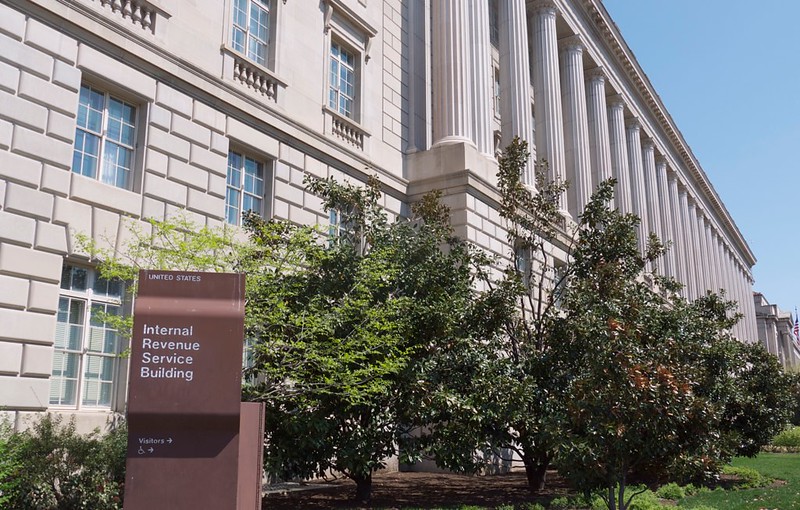- News,
- Sponsor Article
Public Finance Perspective: Rays of Hope for Public Works Financing
Two recent IRS releases offering relief and promoting financial stability in uncertain economic times address regulatory exceptions for bond guarantees and the treatment of Demand Deposit State and Local Government Securities (SLGS) for tax-exempt bonds. Article provided by LexisNexis.

Municipal credit stability during troubling economic times, that feature, for example, persistently high office vacancy rates,[1] is largely attributable to issuer adherence to a conservative posture in meeting debt obligations and new issuance circumspection. Two bright spots coming out of recent IRS releases provide some relief from potential recessionary trends that are prompting cash balance issuer discipline.
The first extends relief from a restriction on a regulatory exception[2] to IRC Section 148 arbitrage rules. The limitation applies to certain state perpetual trust funds that guarantee governmental or qualified 501(c)(3) bonds for specified government activities conducted by political subdivisions or public schools. Eligible funds must have satisfied requisite conditions as of August 16, 1986.
Anticipated proposed regulations will eliminate an additional restriction that limits the amount of bonds a fund can guarantee, plus the then-outstanding amount of bonds previously guaranteed by the fund, to 500% of the total costs of assets held by the fund as of December 16, 2009.[3] For bonds sold on or after May 10, 2023, proposed regulations will change the effective date from December 16, 2009 to the sale date of the bonds to be guaranteed. Hence, the bond guarantee limit (outstanding guaranteed bonds, plus bonds to be guaranteed) is 500% of total costs of assets the fund holds, as of the date bonds to be guaranteed are sold.
Separately, a recent Chief Counsel Advice Memorandum (CCAM)[4] advises IRS field offices in connection with Demand Deposit State and Local Government Securities (SLGS), which are treated like tax-exempt bonds for arbitrage and rebate purposes. The longer-term working capital rules provide a safe harbor against the creation of replacement proceeds by continuously investing in tax-exempt bonds, which includes Demand Deposit State and Local Government Securities (SLGS). When the federal government approaches its debt limit, however, the sale of Demand Deposit SLGS is suspended, and the U.S. Treasury is authorized to convert Demand Deposit SLGS it has issued into U.S. Treasury certificates of indebtedness (COIs) until the debt issue is resolved, after which the funds can be reinvested in Demand Deposit SLGS.
The CCAM treats COIs as if they were Demand Deposit Securities during the sales suspension period, thus satisfying the continuous investment safe harbor. Hence, the arbitrage and rebate limitations do not apply.[5]
Service posture in this area has been most recently critical when the sale of SLGS was suspended this past spring in what Treasury portrayed as an action compelled by potential default. The suspension of demand deposits and time deposit securities had been open-ended, as concerns about the debt limit cap and raising it had been ongoing for months. But Treasury left the SLGS window open until the 11th hour when Treasury announced that government obligations would be compromised in early June, absent congressional action.
[1] See National Office Report, CommercialEdge (July 2023)
[2] Treas. Reg. § 1.148-11(d)(1)(i)(F).
[3] Notice 2023-39. See Federal Taxation of Municipal Bonds (Sept. 2023 release), §11.04[6][E] and RN-547.
[4] CCA 202326019 (June 8,2023). See Federal Taxation of Municipal Bonds (Sept. 2023 release), §11.04[1][N] and SLGS-125.
[5] Id.
Disclaimer: Because opinions with respect to the interpretation of state and federal laws relating to municipal obligations frequently differ, the National Association of Bond Lawyers (“NABL”) has given the sponsors who contribute to the Thought Leadership Column the opportunity to express their individual legal interpretations, opinions, and positions. These interpretations, opinions, and positions, whether explicit or implicit, are not intended to reflect any position of NABL or of the law firms or organizations with which the authors are associated, unless they have been specifically adopted by such organizations.